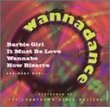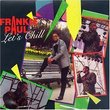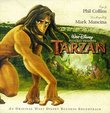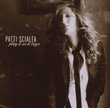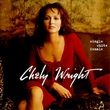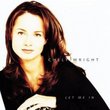| All Artists: Dayna Kurtz Title: Beautiful Yesterday Members Wishing: 2 Total Copies: 0 Label: Kismet / Mri Release Date: 8/3/2004 Genres: Pop, Rock Style: Number of Discs: 1 SwapaCD Credits: 1 UPCs: 829757756226, 742451025422 |
Search - Dayna Kurtz :: Beautiful Yesterday
 | Dayna Kurtz Beautiful Yesterday Genres: Pop, Rock
|
Larger Image |
CD DetailsSimilar CDs
Similarly Requested CDs
|
CD ReviewsTop-quality singer/writer/musician -- the good stuff is here R. Palmer | 10/25/2004 (5 out of 5 stars) "Make no mistake, this is a serious talent here. This isn't some silly little blonde strumming three guitar chords and singing naive and wistful love songs and cutesy tuneless ditties. This broad can really sing, and sing with artistry and power. She has the kind of voice that can be husky and silky at the same time. Her voice can float effortlessly from dark, textured, growling lows to sweet, open highs. Unlike all too many modern singers, Kurtz has a wide dynamic range and she knows how to use it. The "Beautiful Yesterday" album is an excellent companion to her earlier, all-originals CD, "Postcards from Downtown." Kurtz is a consummate writer and I highly recommend that album if you want to hear a great collection of striking, idiosyncratic, thoughtful, and ballsy songs. Her new CD is mostly covers (nine, plus three originals) and showcases her singing (and strong guitar playing), with the backing of an array of excellent sidemen, particularly, I think, Peter Vitalone on piano and organ. The range of styles and selections is broad and cosmopolitan, reflecting, I think, her extensive touring through Europe. There is a deceptive simplicity to many of the songs, particularly the openers "Music Box," and "I Belong to the Wind," where a simple repetitive melody is gradually built up and counterpointed by Kurtz's vocal and creates a subtle intensity and release. This effect heightens in "Love Where Did You Go?" where the vocal is echoed by the music, which starts quietly with a slow pulsed guitar, swells to a very bluesy blaring trumpet and heavy shuffling drums, and gradually winds down to a quiet slide guitar and muted horn. "Left Alone" is similar--the vocal is quiet, almost plaintive, against stretched out organ chords and rippling piano, with a beautiful piano solo. Kurtz's voice caresses and glides through the lyric and the melody; she has the classic jazz singer's ability to make her singing seem both distinctively personal and inevitable at the same time. We are in rare company here. "Joy in Repetition," a Prince tune, is revitalized with a haunting Ricky Lee Jonesy feel and a syncopated vocal that drifts around and behind a steady, almost hypnotic drumbeat. Kurtz's take on "Those Were the Days" has a rather Eastern European feel to it. With its deliberate vocal pacing, and its accordion and wavering violin backing, Kurtz reveals the poignancy which was lost in the Mary Hopkins hit version. The feeling continues in the almost cheerfully-disillusioned "Everybody Knows"--it is brash, dark, brooding, insistent, unsmiling, and biting. And yet, I find, oddly beguiling, with an almost giddy gospel feeling midway through (with swelling organ chords) and some nice twists in the lyric ("Everybody knows that you've been faithful... give or take a night or two"). Kurtz plays some nice, moody slide guitar along with her singing on "Amsterdam Crown," written by Eszter Balint, a fellow singer/writer, but probably better known to most Americans for her lead performance in Jim Jarmusch's first, quirky film "Stranger Than Paradise." On the most mainstream song on the album, "I Got It Bad (And That Ain't Good)," Kurtz is joined by Norah Jones. Good host that she is, Kurtz somewhat accommodates her singing here to Jones's style. While I was glad to see someone NOT in the Britney, Christina, or Bligh school of popular music finally get some recognition, I'm not a fan of Jones's wispy "whisper-singing" approach. But maybe Jones will open the door for others, like Kurtz, who can really do full-voiced, grown-up singing. But listen for yourself and decide; in any case, the overall performance and arrangement are still excellent, however you may rate Jones's presence. "Lost and Looking" recalls the brooding feel of "Love Where Did You Go?" and "Left Alone." Kurtz's vocal floats plaintively over pulsed, percussive guitar strokes and subtle, drawn-out, wailing organ chords. This song seems so simple, but there is a lot going on. It's very bluesy in feeling and somewhat in structure, though it's not a blues. Kurtz's phrasing and movement around and against the beat, which creates a haunting syncopation, is deep in the jazz idiom. And while the heavy beat and slow pace of the tune create a sense almost of immobility, Kurtz's vocal runs through an dramatic, though understated range of dynamics and pitch. I suppose, because Kurtz does a lot of touring in Europe and sings a number of sad, torchy, off-beat songs, it is inevitable she be compared to Marlena Dietrich or Edith Piaf. So, I suppose her selection of "Parlez-moi D'amour," sung in French, is Kurtz's way of saying, "Okay, here it is, let's just get it over with." And, I think it works, right down to the accordion and string accompaniment. I see it as sort of a companion piece to "Those Were the Days." The final cut, "Beautiful Yesterday," returns to the opening and recurring themes of time, loss, and death, and echoes the feeling and texture of "Lost and Looking," though the final upward swelling of the vocal and organ against soaring strings creates an unexpected contrast and ambiguity. Some might think the album monotonous and I want to address that. I once took an art course that covered traditional Japanese landscape paintings, and at first they all really did look pretty much alike to me: there's a fairly standard perspective and set of elements, much like traditional sonnets all having fourteen lines or a twelve-bar blues having a standard chord progression. But I found as the course went on that there was an incredible richness and variety possible within the genre. You just have to re-scale your gaze and be more attentive to the details and nuances of each artist's style. You develop an eye for it, just like you develop your ear until all blues songs don't sound the same. Now, on this album, Kurtz presents a set of songs that are somewhat closely related, musically and thematically. Furthermore, the lyrical content of most of the songs simply demands a rather "flat" vocal pitch, a mournful or dispirited voice; they are just that kind of songs. Within these limits, or rather, despite them, I think Kurtz does an incredible job of creating a rich tapestry with her dynamics and phrasing and the counterpoint of the vocals and the music. If you get the chance, go see her in person; she does it all with just her voice and her solo guitar playing (check her website). Nowadays, and maybe always, most pop music seems to make no demands on listeners, but some artists reward well those who make the effort to listen more carefully. Kurtz is one of those artists and this album will reward you if you have a taste for carefully crafted songs, excellent playing, striking arrangements, and genuine, top-quality singing. This is the real thing. " A Female Leonard Cohen CP | VA United States | 08/25/2004 (2 out of 5 stars) "Maybe that's high praise. It's not for me. I'm going to feel entirely guilty as I write this review, because I found Beautiful Yesterday to be really monotonous. I bought it because of an astounding review in The Washington Post. Now, I'm not a real Leonard Cohen fan either. I like Suzanne--I heard Judy Collins sing it first. However, I'm just not a fan of the one note songbook. I think music is supposed to be about moving up and down the scale, that's why the notes are there! In Kurtz' collection, she is so solidly in the alto range that the light of day is a very far away concept. Mind you, I did like Parlez-moi d'amour and Those Were the Days. I found them exceptional, perhaps because Those Were the Days can make me nostalgic regardless of who's singing and anything by Edith Piaf deserves attention. The timbre of her voice reminds me of Tracy Chapman, a much preferred artist in my opinion. While Kurtz' voice is not altogether unappealing, I find the lack of movement to be exactly that. Enough said. I'll go to my corner and feel guilty for a while." Rare and Lost Gems, Found Listener Bob | Long Island | 09/06/2004 (5 out of 5 stars) "I'm not an expert on Frank Sinatra, but I have enough musical knowledge to understand that in the mid-1950's, during the early years of the vinyl LP album, his great contribution to recorded music was his way of reconsidering what the album was, and more importantly, what it could be. Prior to this, albums were literally just a collection of songs thrown together. But Sinatra considered the album as a whole entity, saw its potential as an art form unto itself, and chose songs that related to each other thematically to create a mood that lasted throughout the album.
This is exactly what Dayna Kurtz has succeeded in doing on "Beautiful Yesterday", her second studio album, which is, to me, one of the best albums of covers ever recorded. The songs, including the bonus of three new originals by Ms. Kurtz, mainly relate to the theme of passing time: of loves lost and time lost. While a singular mood is definitely created, drawing material from songwriters as varied as Duke Ellington, Billie Holiday, and Prince specifically prevents the CD from becoming monotonous or predictable. With innovative arrangements (such as having an accordian appear as the perfect touch to "Parlez-Moi D'Amour") and having a surprise guest appear (Norah Jones singing in a give and take duet on another song), predictable is something this album is not. In fact, it is a collection of non-standard standards. Dayna Kurtz has brought together a collection of lesser known songs and in some cases has discovered diamonds in the rough, wonderful ahead of their time songs that somehow were lost in the music business shuffle to begin with, and, until now, completely forgotten. Polished with her emotional vocals and inspired playing by all the musicians involved, and illuminated by her ability to get inside the meaning of these songs better than the original writers themselves, gems such as Wendy Huber's "I Belong to the Wind" are finally allowed to shine." |

 Track Listings (12) - Disc #1
Track Listings (12) - Disc #1